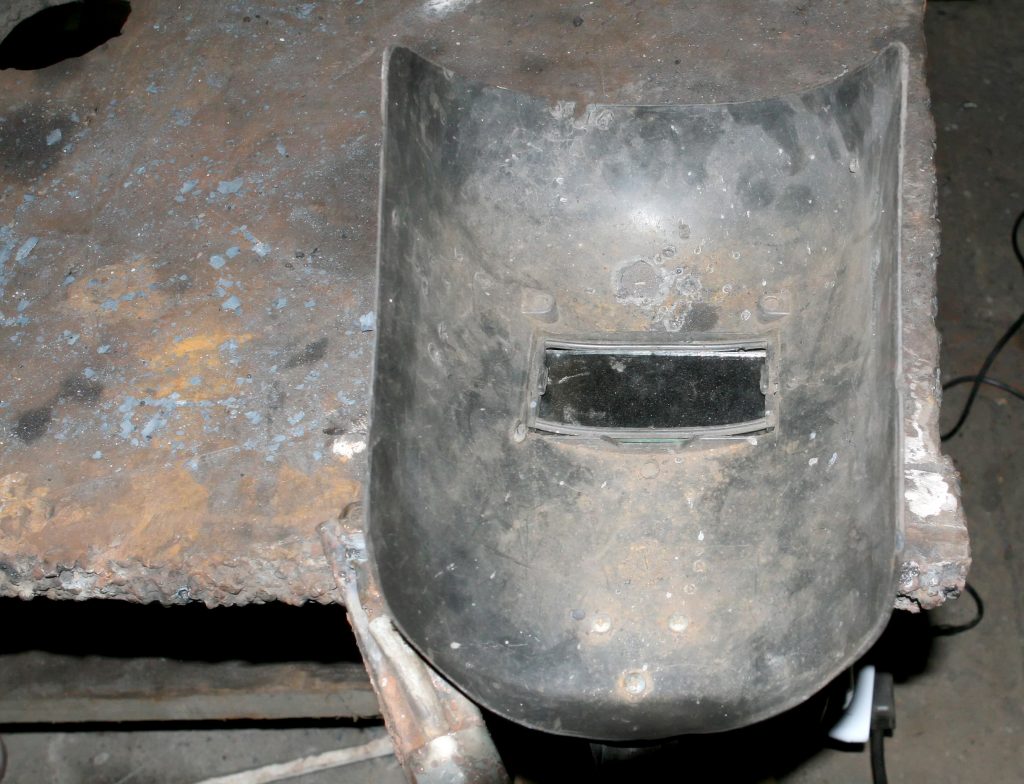 Unfair treatment at work can, unfortunately, be a common occurrence. While always annoying, the treatment can sometimes rise to such an egregious level that an employee feels justified in filing a lawsuit against the employer; especially if the aggrieved employee feels that there are racially motivated variances in treatment. As with all cases, however, the evidence is the key that unlocks the door to a successful lawsuit. For Rosie Washington, a former employee of the Louisiana State Penitentiary, an employment discrimination case devoid of evidence kept her victory behind locked doors.
Unfair treatment at work can, unfortunately, be a common occurrence. While always annoying, the treatment can sometimes rise to such an egregious level that an employee feels justified in filing a lawsuit against the employer; especially if the aggrieved employee feels that there are racially motivated variances in treatment. As with all cases, however, the evidence is the key that unlocks the door to a successful lawsuit. For Rosie Washington, a former employee of the Louisiana State Penitentiary, an employment discrimination case devoid of evidence kept her victory behind locked doors.
Mrs. Washington was a licensed practical nurse for the Louisiana State Penitentiary from 2001 to 2011. Mrs. Washington claimed that she began to suffer racial discrimination in 2008 after she refused to switch from the night shift to the day shift to accommodate a white couple who wanted to work together. After Mrs. Washington refused to switch shifts, she was disciplined three times and three Employee Violation Reports were created to document the disciplinary action. Mrs. Washington cited the disciplinary action and reports as evidence of racial discrimination along with instances where her leave requests were denied while others leave request was granted and where her absences from work were over counted. She also claimed that she was disciplined more harshly than white employees for the same conduct and that she was fired because of her race. In 2011, Mrs. Washington sued multiple defendants including the state of Louisiana, the Department of Public Safety and Corrections, the Louisiana State Penitentiary, and several other state actors for employment discrimination pursuant to Title VII of the Civil Rights Act. Mrs. Washington also sought an injunction to prohibit the penitentiary from firing her.
Following the dismissal of the non-Title VII claims by the United States District Court for the Middle District of Louisiana, the case proceeded for almost two years. During that two-year period, no pre-trial preparations or discovery occurred. Subsequently, the employment relationship between Mrs. Washington and the penitentiary ended in a manner that was unclear on the record. There being no evidence in support of Mrs. Washington’s claims, the defendants filed a motion for summary judgment. A human resources manager for the Louisiana Department of Corrections submitted an affidavit with the motion for summary judgment supporting that no discrimination occurred. As the record was devoid of any other evidence, the District Court granted the summary judgment motion and Mrs. Washington appealed.
 Louisiana Personal Injury Lawyer Blog
Louisiana Personal Injury Lawyer Blog


 Workers’ compensation pays for an employee’s medical expenses and lost wages when an employee is injured on the job. But what happens when an employee is injured while performing his or her job in a manner not approved of by the employer? Recently, a Court of Appeal for the State of Louisiana addressed this issue in a case involving a man from St. Landry Parish.
Workers’ compensation pays for an employee’s medical expenses and lost wages when an employee is injured on the job. But what happens when an employee is injured while performing his or her job in a manner not approved of by the employer? Recently, a Court of Appeal for the State of Louisiana addressed this issue in a case involving a man from St. Landry Parish. Under Louisiana law, an employee who is injured while on the job is entitled to “vocational rehabilitation services” (services that help an individual overcome his or her own physical or mental disability in order for that individual to return to work) provided by a vocational rehabilitation counselor.
Under Louisiana law, an employee who is injured while on the job is entitled to “vocational rehabilitation services” (services that help an individual overcome his or her own physical or mental disability in order for that individual to return to work) provided by a vocational rehabilitation counselor.  Be it alleged abuses in the welfare system or lying on their tax return, individuals abusing the system has been a hot button issue for the past couple of years. But what happens when someone gets caught? How does the law handle the people who abuse the system? Recently, a Louisiana Court of Appeal held that concealing previous injuries resulted in a forfeiture of workers’ compensation benefits (insurance that pays wages and medical costs for an injury occurring while at work) and the payment of restitution (compensation ordered by the court for restoration of money to its rightful owner) for a Saint Martinville concrete finishing business owner.
Be it alleged abuses in the welfare system or lying on their tax return, individuals abusing the system has been a hot button issue for the past couple of years. But what happens when someone gets caught? How does the law handle the people who abuse the system? Recently, a Louisiana Court of Appeal held that concealing previous injuries resulted in a forfeiture of workers’ compensation benefits (insurance that pays wages and medical costs for an injury occurring while at work) and the payment of restitution (compensation ordered by the court for restoration of money to its rightful owner) for a Saint Martinville concrete finishing business owner. We all know that each U.S. citizen is entitled to certain rights contained within the Constitution.
We all know that each U.S. citizen is entitled to certain rights contained within the Constitution. A
A  One of the least know parts of a personal injury suit occurs after trial or settlement. It’s called subrogation. Subrogation is the reimbursement of third parties for payments made relating to an accident. Many times, a subrogation claim is made by the injured’s own vehicle insurance provider or by the injured’s own medical insurance provider. Embedded in many insurance contracts is a “subrogation waiver.” As the name suggests, a subrogation waiver in an insurance contract provides that one party agrees to waive its subrogation rights against another party in the event of a loss. Typically, this waiver takes the form of insurers agreeing to forego its ability to seek payment from third parties who may be responsible for losses the insurer had to pay to its insured. In a workers’ compensation context, such waivers would prevent an insurer from seeking compensation from a party who may have been responsible for an employee becoming injured. Absent such waiver, an insurer would have the ability to seek compensation for what it paid in benefits from the party responsible for the work injury.
One of the least know parts of a personal injury suit occurs after trial or settlement. It’s called subrogation. Subrogation is the reimbursement of third parties for payments made relating to an accident. Many times, a subrogation claim is made by the injured’s own vehicle insurance provider or by the injured’s own medical insurance provider. Embedded in many insurance contracts is a “subrogation waiver.” As the name suggests, a subrogation waiver in an insurance contract provides that one party agrees to waive its subrogation rights against another party in the event of a loss. Typically, this waiver takes the form of insurers agreeing to forego its ability to seek payment from third parties who may be responsible for losses the insurer had to pay to its insured. In a workers’ compensation context, such waivers would prevent an insurer from seeking compensation from a party who may have been responsible for an employee becoming injured. Absent such waiver, an insurer would have the ability to seek compensation for what it paid in benefits from the party responsible for the work injury. Inherent in most insurance contracts is an insurer’s duty to defend its insured against certain lawsuits. Part of this duty requires the insurer to pay for all legal costs and other fees related to a particular lawsuit. In a commercial general liability (“CGL”) context, business owners often rely on an insurer’s duty to defend in order to avoid paying significant legal fees for defending actions which would ultimately be covered by a CGL policy. As one might expect, whether this duty to defend exists depends on whether the loss alleged in a lawsuit is within the scope of the policy’s coverage. As a recent Louisiana Appellate Court illustrates, it is very important that insureds understand the language of their CGL policies so as to know when a duty to defend exists.
Inherent in most insurance contracts is an insurer’s duty to defend its insured against certain lawsuits. Part of this duty requires the insurer to pay for all legal costs and other fees related to a particular lawsuit. In a commercial general liability (“CGL”) context, business owners often rely on an insurer’s duty to defend in order to avoid paying significant legal fees for defending actions which would ultimately be covered by a CGL policy. As one might expect, whether this duty to defend exists depends on whether the loss alleged in a lawsuit is within the scope of the policy’s coverage. As a recent Louisiana Appellate Court illustrates, it is very important that insureds understand the language of their CGL policies so as to know when a duty to defend exists. When are you on the job? While seemingly a simple question, many personal injury cases revolve around the issue of whether an individual was acting within the scope of his or her employment. The ramifications of the answer to this question determine whether a business is on the hook for its employee’s negligence. Recently, a Louisiana Court of Appeal (“the Court”) addressed this question when determining whether a Coca-Cola Bottling Company United, Inc. (“Coca-Cola”) employee was working for the company at the time of an accident.
When are you on the job? While seemingly a simple question, many personal injury cases revolve around the issue of whether an individual was acting within the scope of his or her employment. The ramifications of the answer to this question determine whether a business is on the hook for its employee’s negligence. Recently, a Louisiana Court of Appeal (“the Court”) addressed this question when determining whether a Coca-Cola Bottling Company United, Inc. (“Coca-Cola”) employee was working for the company at the time of an accident. The National Flood Insurance Program, or NFIP, was Congress’ approach to providing flood coverage at affordable rates. Generally, through the program homeowners can buy a Standard Flood Insurance Policy, or SFIP, from the Federal Emergency Management Agency, or from private insurers. According to the Court of Appeals for the Fifth Circuit, the SFIP outlines the conditions and requirements under which federal funds may be distributed to eligible policyholders.
The National Flood Insurance Program, or NFIP, was Congress’ approach to providing flood coverage at affordable rates. Generally, through the program homeowners can buy a Standard Flood Insurance Policy, or SFIP, from the Federal Emergency Management Agency, or from private insurers. According to the Court of Appeals for the Fifth Circuit, the SFIP outlines the conditions and requirements under which federal funds may be distributed to eligible policyholders.